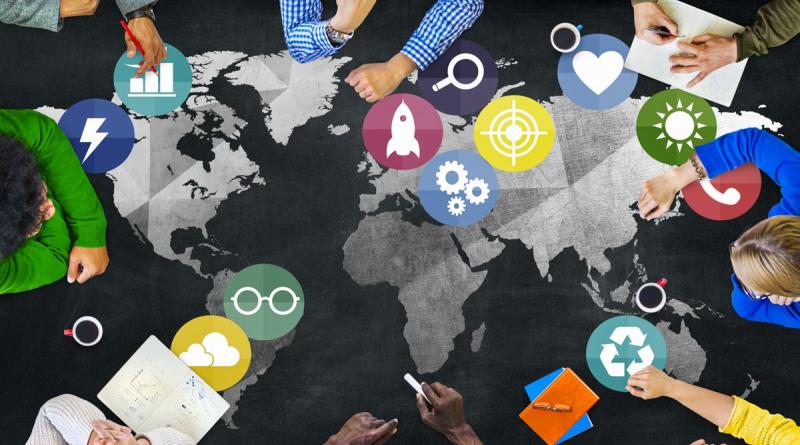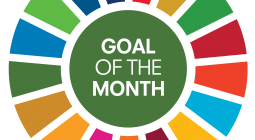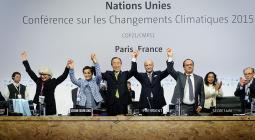Developing a global 'immune response' to 21st century challenges.

Tackling social and environmental challenges in a deeply interconnected world requires a new way of working.
A recent simulation hosted by Johns Hopkins University found that a ‘moderately contagious and moderately lethal’ virus would wipe out 150 million people in 20 months. And if a vaccine was not found it could ultimately kill 900 million.
It’s not just disease outbreaks that can create fast global shockwaves. Financial crises and economic disruption, displacement of people by conflict and climate crisis, and many other challenges are starting in one place and spreading with little regard for political borders, and at speeds and in ways we haven’t seen before.
How do we protect ourselves in a deeply interconnected world? And if interconnection is making us more vulnerable, are we engaging it to become stronger and more responsive at the same time?
As new challenges emerge we are faced with problems for which we don’t have answers. When we test a way to address marine plastic waste, or help people transition to the new economy, how long does it take us to learn about whether we are having the right impact? Does learning take years or months or weeks?
Developing a global ‘immune response’ to 21st century social and environmental challenges, one that matches their scale and speed, requires radically accelerating how quickly we learn about what is working and what isn’t.
Today, we learn about development challenges on a country-by-country basis. We put what we learn into PDFs that are sent to headquarters, published on the internet, or shared through conferences in the hopes that someone will search for the right term, or the right person will be in the right conference. This hardly takes full advantage of our interconnectedness.
Learning in a way that leverages our interconnectedness requires that we remodel the way we learn. Part of UNDP’s answer to this is the Accelerator Labs, a network covering 78 countries. The labs are an experiment to build the largest and fastest learning network with a wide alliance of partners.
We have initiatives ranging from convening people to learn from others, to building and testing prototypes, and by drawing inspiration from other fields.
Most importantly, we’re sharing these questions in the hopes of working with others who’re thinking about the same things.
There are nearly 1,000 people in the Accelerator Lab network – and we expect hundreds more to come. But imagine joining a WhatsApp group of that size. Chances are you wouldn’t be able keep up with torrent of messages. Isolating the network into smaller, thematic groups might lead to more relevant conversations, but in a world of interconnected challenges – where climate change is accelerating antibiotic resistance for example – the trade-off is that we will be missing some important lessons.
Research backs this up. ‘Small world networks’ are faster than fully integrated networks because people are likely to pay more attention. We to learn as if we were one big mind.
No matter how many smart people are in a network, there will always be more smart people outside of it. We have a responsibility to use knowledge from others in development but also from mobile phone companies, social media networks, and the real experts – the people who are most affected by these challenges.
This type of sharing can only happen with trust and the good reputation of people involved. We need to learn how to effectively build platforms where trusted groups, interested in particular issues, can come together.
Simone Cicero at the Platform Design Toolkit has been considering what the boundaryless organization might look like. When it comes to the public sector, Laboratorio de Gobierno in Chile has shown what networked learning could look like in public sector innovation with Innovadores Públicos.
For every newsletter that lands in your inbox, you’re considering your ‘return on attention’ when you think about whether to open it. Does it give you something relevant and interesting? Or do you delete it or read it only if you have spare time?
Many corporate knowledge sharing tools such as Yammer go straight to email trash because of our dismal return on attention. We need to capture attention across a wide variety of interests.
To building a faster, global learning network, we are pursuing three approaches.
First, we are convening people to cross-pollinate ideas. This month, we brought together those who have been thinking about these questions in business, government, and development to share what we’ve learned. This will be the first of many gatherings.
Second, we are creating prototypes to explore these questions within the Accelerator Labs. We have a live prototype that is testing ways of collecting learning from teams weekly rather than around specific project milestones.
Third, we are looking to inspire our thinking with approaches from fields such as biodiversity and evolution, immunology, new and emerging technology, anthropology and psychology. This includes drawing lessons from people like Deborah Gordon, studying the “anternet” and the behaviour of ants, as well as Adrienne Maree Brown, who writes about ‘critical connections over critical mass’ and the power of sterlings, ferns and dandelions in shaping ecosystems.
Cracking this isn’t something we can do alone. We’re looking to explore these questions with others who are as deeply passionate and invested in answering them as we are.
If you’re interested in joining us, please get in touch via Twitter (@leursism, @ElaMi5, @kaliper, @UNDPAccLabs).
With thanks to John Hagel, Shreenath Regunathan and Glenn Fajardo for their feedback on our thinking about this work.
UNDP



